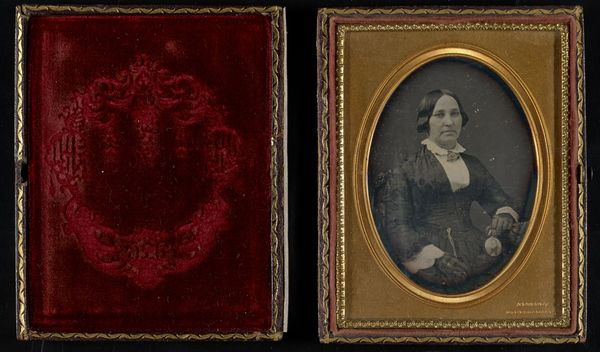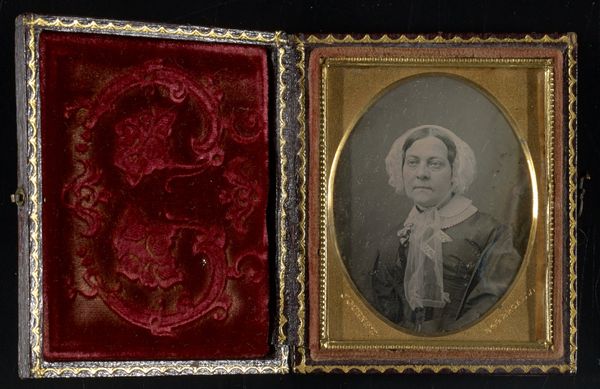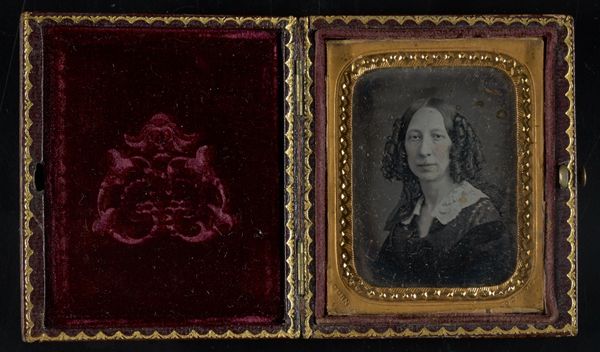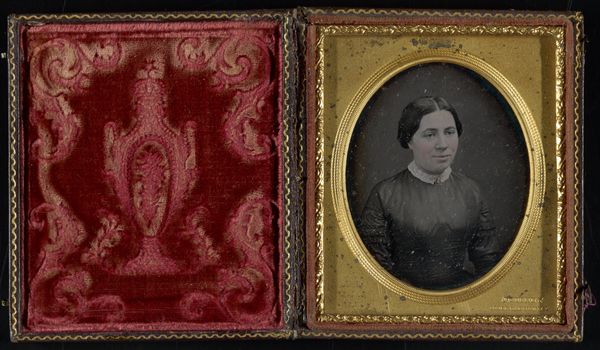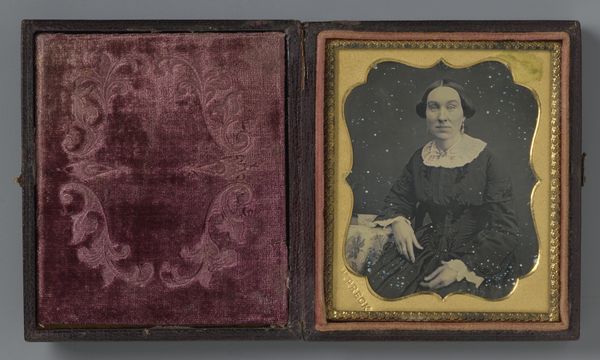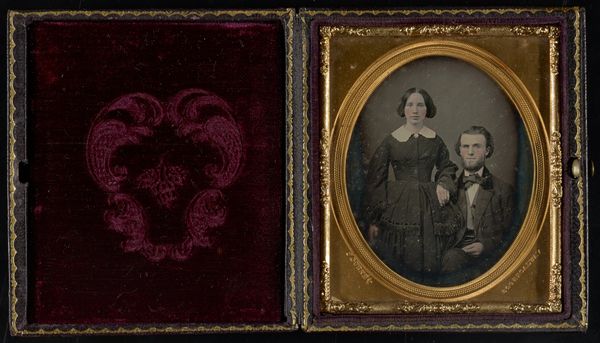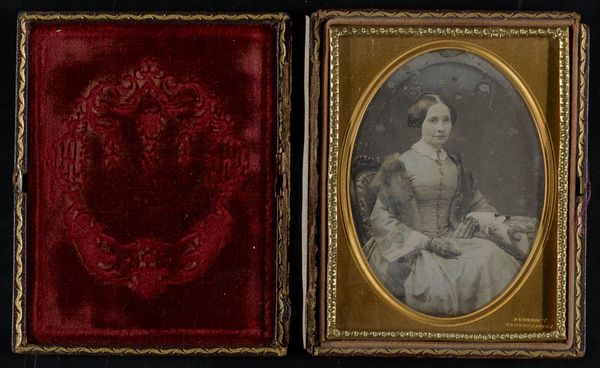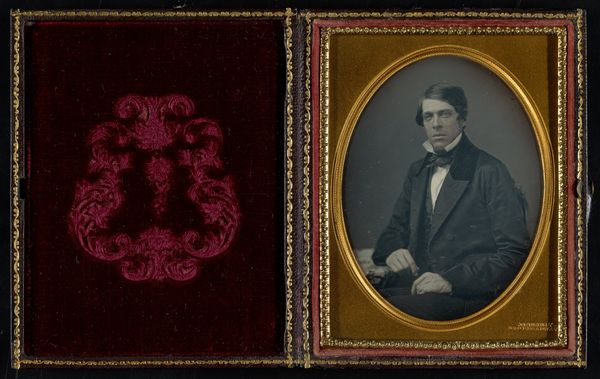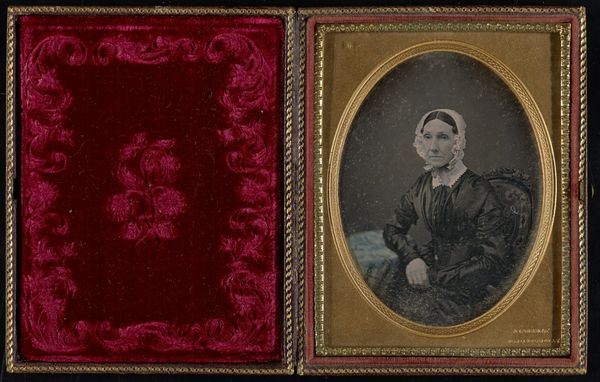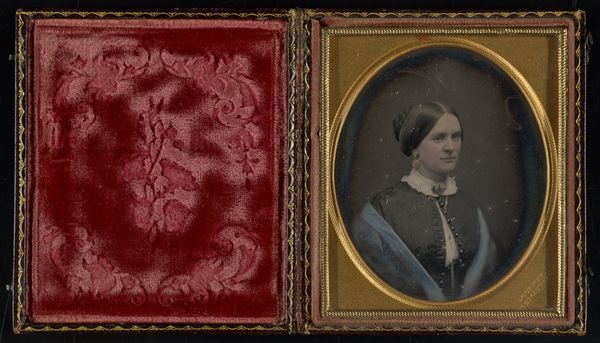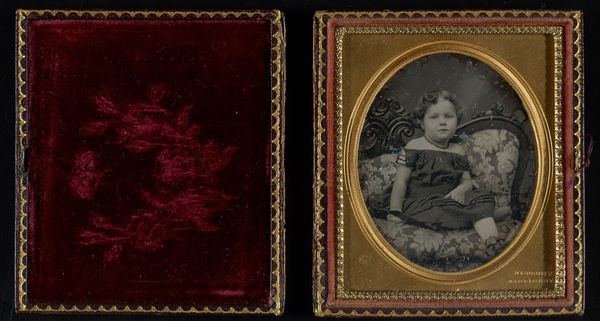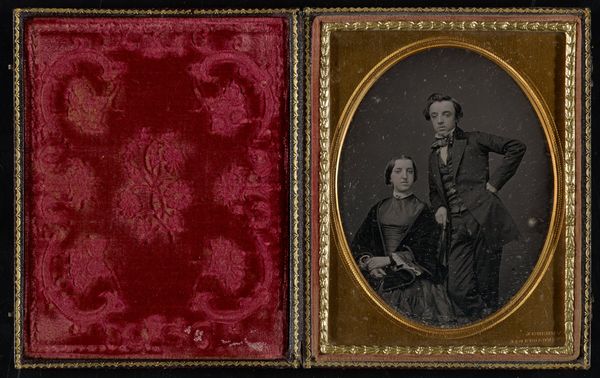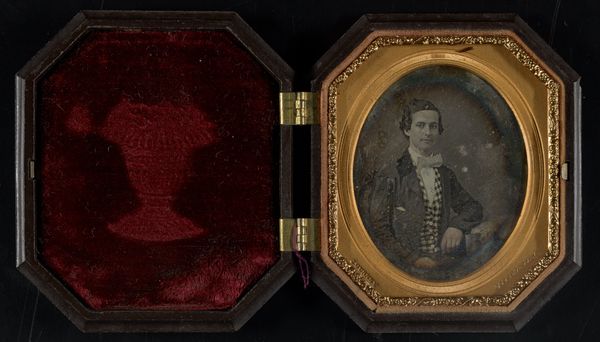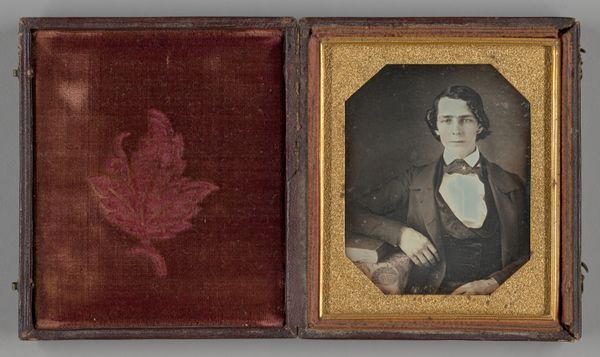![Untitled [half-length portrait of a woman seated in the 'Gurney chair'] by Jeremiah Gurney](/_next/image?url=https%3A%2F%2Fd2w8kbdekdi1gv.cloudfront.net%2FeyJidWNrZXQiOiAiYXJ0ZXJhLWltYWdlcy1idWNrZXQiLCAia2V5IjogImFydHdvcmtzL2M3YmZlNTUyLTdmZmYtNDY1OC1hYTM2LWI2MzM3YWU0NDJmYS9jN2JmZTU1Mi03ZmZmLTQ2NTgtYWEzNi1iNjMzN2FlNDQyZmFfZnVsbC5qcGciLCAiZWRpdHMiOiB7InJlc2l6ZSI6IHsid2lkdGgiOiAxOTIwLCAiaGVpZ2h0IjogMTkyMCwgImZpdCI6ICJpbnNpZGUifX19&w=3840&q=75)
Untitled [half-length portrait of a woman seated in the 'Gurney chair'] 1852 - 1858
0:00
0:00
daguerreotype, photography, gelatin-silver-print
#
portrait
#
16_19th-century
#
daguerreotype
#
photography
#
gelatin-silver-print
#
united-states
Dimensions: 2 1/2 x 2 in. (6.35 x 5.08 cm) (image)2 15/16 x 2 3/8 x 11/16 in. (7.46 x 6.03 x 1.75 cm) (mount)
Copyright: Public Domain
Jeremiah Gurney produced this daguerreotype, a photograph on a silvered copper plate, sometime in the mid-19th century. Here, a woman is captured seated in what was known as the ‘Gurney chair.’ In an era when photography was a novel technology, the studio played a crucial role in shaping its social meaning. Gurney's New York studio was one of the most prominent, setting trends for portraiture. The ‘Gurney chair,’ was one such trend. Note the woman's composed posture and dress. These are visual markers of middle-class identity. As photography democratized portraiture, it also provided a means for individuals to perform and negotiate their social standing. To further understand the dynamics of photographic portraiture in 19th-century America, one might explore archives of studio records, newspapers, and etiquette manuals. These sources can reveal the complex interplay between technology, commerce, and social aspiration that shaped the visual culture of the time.
Comments
No comments
Be the first to comment and join the conversation on the ultimate creative platform.
